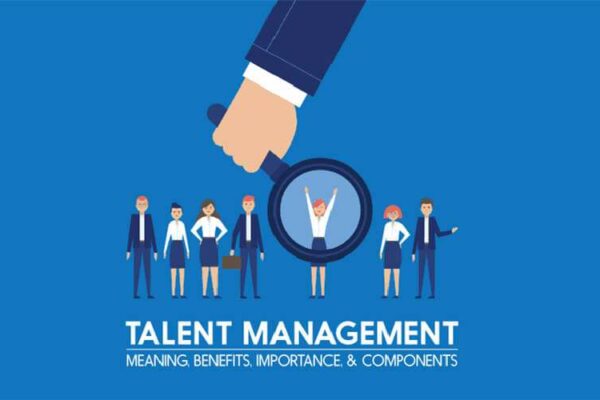Great managers often have good performance histories, are subject matter experts in their industries, and have a desire to be in charge. However, in order to lead effectively, they must master another ability that is sometimes disregarded: talent management.
How to develop talent within a company? Running a top-notch team requires the capacity to recognize talent (internally and outside) before others do, to unleash human potential, and identify not just the best person for each function but also the ideal role for each employee. In other words, excellent managers make excellent talent agents.
- What Is Talent Development?
- Why Is Talent Development Important?
- How To Develop Talent Within A Company?
- Consider Ahead
- Pay Attention To The Appropriate Qualities
- Think Inclusively
- If You Can Stay Inside, Avoid Going Outside
- Get The C-suite On Board
- Assure Your Organization’s Mission Is In Place
- Identify Organizational Goals & Needs
- Build Partnerships Across The Company
- Nurture A Growth Mindset
- Make Talent Development Part Of Your Company Culture
- Examples Of Talent Development
- Conclusion
What Is Talent Development?
Talent development has seen a variety of definitions over the years, but what remains consistent has been this:
Taking advantage of an employee’s skills and strengths can help them develop and advance within your organization. This is referred to as talent development.
In terms of training and development, this means:
- Recognizing the potential in your employees
- Looking at teams and how they could thrive over time
- Designing talent development initiatives to ensure growth
- Targeting specific areas of strength and employee interest
- Moving employees to areas in which they are best suited
Why Is Talent Development Important?
Employees of today are spending more time at work while also wishing for more balance in their lives. With younger workers especially, this balance is crucial, as is knowing that the job they are doing makes a difference.
Talent development initiatives offer employees an opportunity to learn and expand in their areas of interest. This, in turn, makes them happier and more productive (and more likely to stick around).
Talent development encompasses more than simple training programs for rules. Here, workers can delve deeper into and broaden their interests and skills within the context of the workplace.
When done well, talent development during training improves performance and increases enjoyment for workers.
How To Develop Talent Within A Company?
Consider Ahead
Oddly, during job interviews, prospective employees are frequently asked about their career goals and where they see themselves in five years, but few managers ask themselves about their talent strategy for that time period. Fewer leaders consider the future to determine whether or not their new hire has skills that are compatible with their long-term strategy, even though the majority of leaders are aware of the type of talent they are seeking at the time. If you have a clear idea of where you want to go, concentrate your efforts on finding someone who possesses the knowledge, skills, and experience you will require to proceed. Don’t take it for granted that everyone you have now will remain. While achieving your short-term objectives, you must also be playing the long game.
Pay Attention To The Appropriate Qualities
The two biggest errors managers make when assessing the abilities of others are placing too much weight on past performance (even when there are no reliable metrics available) and exaggerating the value of a person’s resume, hard skills, and technical knowledge. In 15 years, 65% of today’s jobs, according to the World Economic Forum, will no longer exist. Because the current educational system is geared more toward preparing students for present-day employment than for jobs in the future, leaders cannot overemphasize its importance. Even though we may not be able to predict what those jobs will entail, it is obvious that those who possess certain soft skills, like emotional intelligence, drive, and learnability, will be better prepared to fill them. They are the fundamental qualities that govern the development of new abilities and knowledge. These fundamental characteristics of talent will probably become even more crucial with the development of AI.
Think Inclusively
Most hiring managers have a propensity to choose candidates who are similar to themselves. This tendency harms diversity and reduces the effectiveness of teams. We lessen the likelihood of building teams with individuals who have complementary skill sets, those with different and even opposing profiles, when we hire people who are just like us. To think about talent inclusively, you must accept those who are different from you and the other members of your team. To go a step further, however, we advise you to honor those who defy conventional wisdom. Change is the engine of progress, and if you only employ those who support the status quo, change is unlikely to occur. Everyone is aware that businesses with a diverse talent pool typically perform better financially.
If You Can Stay Inside, Avoid Going Outside
When they could find better talent internally, businesses frequently hire from outside. Scientific studies reveal that external hires will take longer to adapt and have higher rates of both voluntary and involuntary exits, despite the fact that they are typically paid more than internal candidates. In order to find talent, it is important to first look within your organization. Because they are more adept at comprehending the culture and navigating the politics of the organization, internal hires frequently adapt more quickly and have higher success rates than external hires. Additionally, they are more likely to be committed and devoted to their company. Promoting internal candidates also increases the engagement of other workers.
Get The C-suite On Board
According to talent development research, the best leaders are those who are dedicated to the growth of all of their employees’ talents. The same study also discovered that as people climb the corporate ladder and unlock doors to their own advancement, they start to lose sight of the need to assist others in doing the same.
Achieving executive buy-in requires assisting them in understanding how their position as leaders affects the business. When it comes to their professional development, employees want to know that their managers are actively supportive of them.

Assure Your Organization’s Mission Is In Place
Make sure your company’s mission and goals are clearly communicated, regardless of whether your ultimate goal is compassionate healthcare or problem-solving customer service.
This is an important first step and contributes to developing a positive workplace culture. If you don’t know where you’re going, how can you plan a path to talent? Creating a clear vision of your company’s future, if this step has not been taken, can be a great tool for gaining the support of the C-suite.
Identify Organizational Goals & Needs
Companies must first determine their current needs and skill gaps in order to increase the likelihood of success. For instance, they might discover that they need to develop a stronger pipeline of potential leaders or that they need technical expertise in particular fields. Decision-makers should always keep the organization’s strategic goals in mind when developing talent in these fields.
Build Partnerships Across The Company
Although many people consider talent development to be the purview of human resources, effective programs require company-wide engagement in talent development. Development initiatives will have the resources they need to succeed if there is buy-in at the highest levels. In addition, participation from individual managers will reveal information about the development potential of particular employees.
Nurture A Growth Mindset
Employee experiences within an organization as well as the success of the company’s development initiatives can be greatly impacted by a company-wide growth mindset in the workplace, where employees believe they have the capacity to learn, grow, and improve.
Organizations should prioritize learning and growth over output and foster a safe space for workers to exchange ideas and try out new skills in order to foster this mindset.
Make Talent Development Part Of Your Company Culture
Training to support that will become a regular part of the workday if corporate culture mandates a growth mindset where talents are discovered and nurtured as a matter of course.
This is beneficial for future member recruitment as well as for fortifying your teams as they stand today. The workforce of today yearns for expansion. People will enjoy working for you if you create a workplace where learning is valued and integrated into daily activities.
Examples Of Talent Development
Talent development can take many different forms, from formal programs to more informal on-the-job learning opportunities. These are a few illustrations of talent development.
Mentorship Opportunities
To successfully develop talent to a high level, one-on-one mentoring is essential. This is especially true for staff members who have been identified as future leaders in the organization or whose development requirements include a focus on soft skills at work.
Identifying mentor-mentee relationships is something that organizations can do creatively. Successful mentors might not work in the same department, but they could still offer useful coaching on team management or communication skills.
Individualized Growth Plans
Organizations should collaborate with their highest-potential employees to create individualized development plans that take into account the employee’s strengths, weaknesses, and long-term objectives if they want to keep and advance them. Managers should collaborate with their staff to develop an action plan in order to ensure employee engagement.
Formal Internal Programs
Companies with enough internal resources and bandwidth can develop internal training and development plans. Continuing programming geared toward enhancing particular technical skills or educating aspiring leaders to effectively manage a diverse workforce may fall under this category.
Partnerships with External Providers
High-potential employees can be sent through external programs to gain access to learning that can’t be delivered internally. They could be online, in-person, or a hybrid. For instance, Emeritus provides online courses that are tailored to the needs of working professionals and have a variety of learning objectives.
Conclusion
Although it may be difficult to imagine, there’s a strong chance that some of the greatest talent for your company isn’t just a recruiter’s phone call away—right it’s there in front of you. Above are talent development tactics to help you identify and enhance the abilities of your employees so you can create a more effective team. Thank you for reading.





